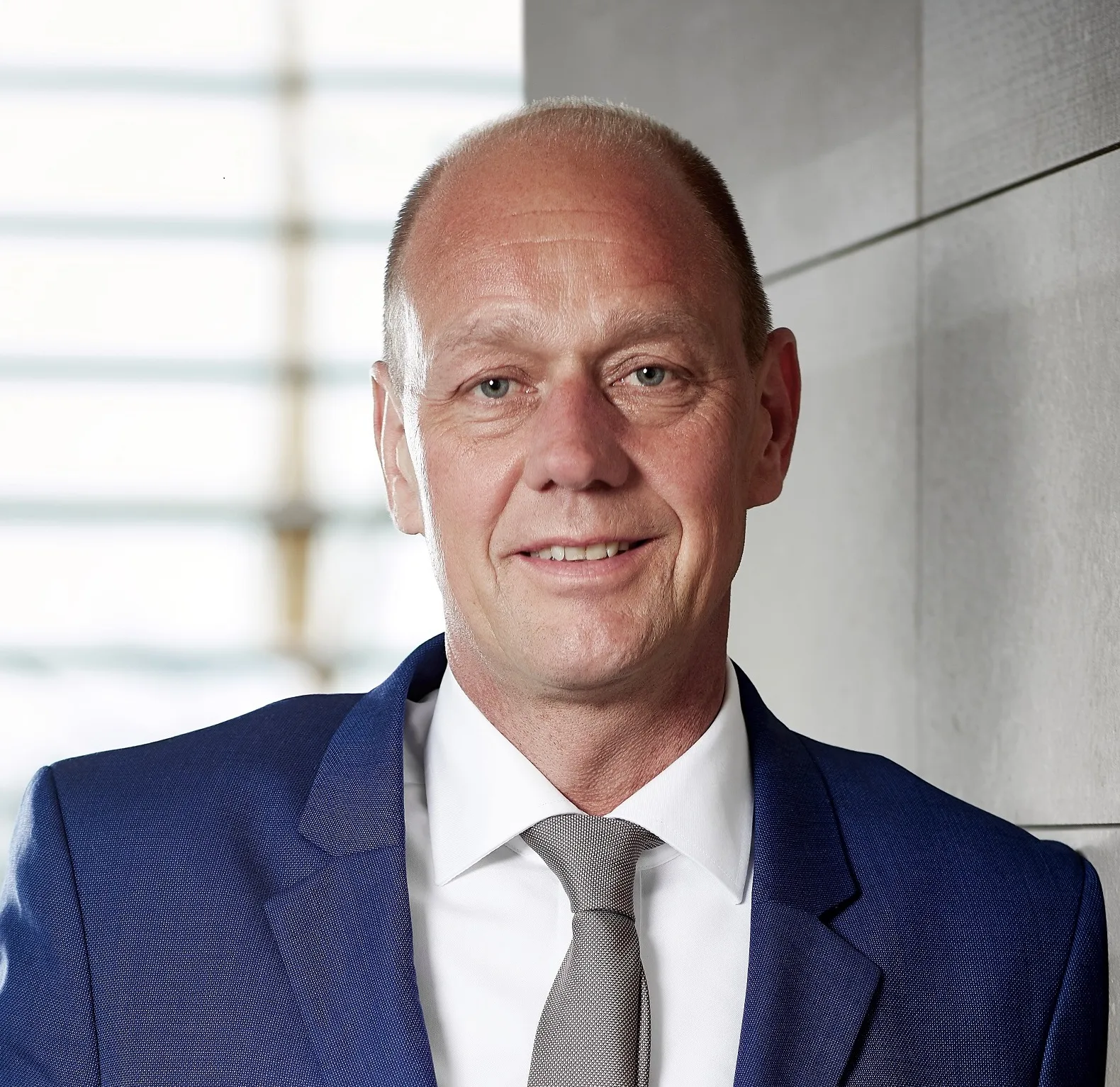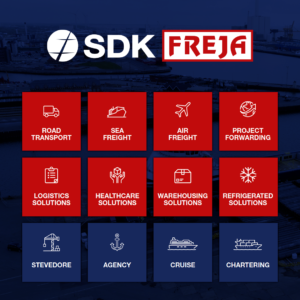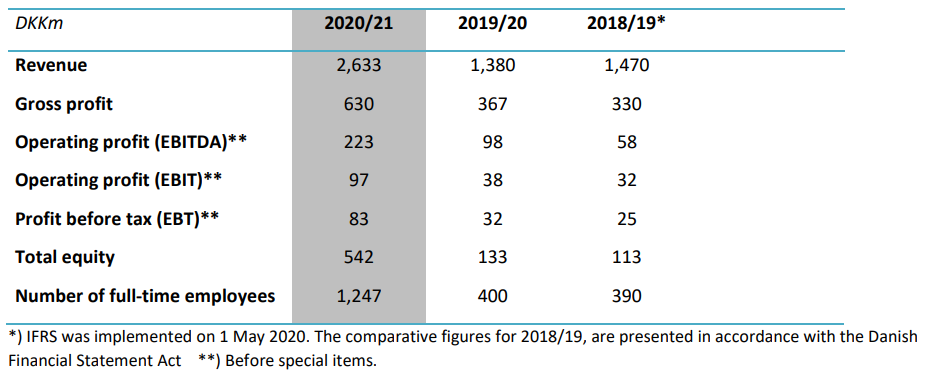Read in Danish

Dear reader
Welcome to FREJA’s second newsletter in 2022, where we would like to share what is happening in our part of the transport & logistics world.
The financial year 2021/22 was a milestone for SDK FREJA with the company’s first consolidated financial report and the best result to date.
FREJA has expanded its online services. We are proud to announce that now you can track your shipments by air or sea with higher precision and easy accessibility.
FREJA is expanding its endeavors with a new location in Herning. The office opened on 01.06.2022 and it is already functional and operational.
In July 2020, the EU adopted the so-called EU Road Package, which lays down rules for remuneration and working conditions for truck drivers. A recent development (13th of July, 2022) has us continuously observing the changes and impacts of the mobility package as the implementation continues.
We thank you for your interest in our newsletter and wish you a good read.
Sincerely
Jan Sunde

SDK FREJAs Annual Report
The shipping- and logistics company SDK FREJA presents their first, complete 12-month report after last year’s merger. The company has succeeded in increasing their revenue to more than DKK 6 billion, which more than doubles last year’s revenue, corresponding to an increase of 128 percent.
SDK FREJA’s annual report finalizes a turbulent year with a COVID-19 pandemic that has yet to fully release the market, a new war in Europe, new legislation from EU and huge pressure on global supply lines, meaning that the shipping and logistics businesses have had a more complicated year than ever before.
“In spite of a global shipping- and logistics business marked by another year of continuous challenges, we, across the Group, have seen clear progress in both our top- and bottom lines, which we owe to the huge effort from our skilled coworkers,” Says Søren Gran Hansen, Group CEO of SDK FREJA and further elaborates:
“Both strategic acquisitions and a continued investment in our IT platform has increased the effectiveness of our internal business protocols and strengthened our solutions to our clients.”
With this year’s result, however, SDK FREJA has achieved a ten-fold growth in EBT over a five-year period, reaching DKK 244 million. This economic ballast will now secure SDK FREJAs strong position when continuing the company’s growth strategy in coming years, and allow for expansion, acquisitions, and growth.
For more information about the financial result of 21/22, you can read the full press release here:

Expanding offices and partnerships in Denmark
FREJA is expanding its endeavors with a new location in Herning. The office opened on 01.06.2022 and it is already functional and operational. This office will expand and reinforce our customer engagement as they will provide sales- and forwarding expertise along with continuous service to our customers.
The opening of an office in Herning underlines our ambition to believe in local engagement and localized workforces. This applies to customer, employee, and partner values, as we consistently invest in decentralized offices.
FREJAs local Senior Account Manager at the new office, Peter Stensfeldt, believes that to be a part of a local industry you need commitment and presence in the local activities.
Because of this, we are proud to announce that FREJA will expand its partnership with FC Midtjylland and Herning Bluefox. We are excited to continue this collaboration as we believe their values align with the values of FREJA Transport & Logistics. FREJA will continue our partnership, and expand it as we seek to engage more in the local activities in and around Herning.
With more than 35 years of experience in transport and logistics, FREJA can offer professional advice and sparring as well as create solutions based on the customer’s needs.
FREJA looks forward to establishing close customer relationships in Herning, and we aim to create an even stronger foundation in Jutland as the customers’ preferred full-service provider by road, sea, and air.
If you want to know more about how FREJA can help you, feel free to reach out to Peter Stensfeldt or Franz Andersen.

FREJAs Track & Trace services for Air & Sea transportation have expanded
FREJA has expanded its online services. We are proud to announce that now you can track your shipments by air or sea with higher precision and easy accessibility. Now with extended and precise information about your shipment on Air and Sea freight.
To use our Track & Trace service, please head over to the following webpage, where you can enter your Air – MAWB no. or Sea – Container no.
Click here for instant access.
After entering your information a screen prompt will pop up with the information about your shipment immediately.
Get instant information about your shipment. No need for a user ID or password. Just insert your tracking ID in our formula to view the latest updates on your shipment – fast, easy, and convenient.
If you have any questions about the functionality or accessibility, please reach out to your FREJA representative, and we will provide you with the necessary information for you to access updates and information about your shipments.

The EU commission insists that the return of trucks act also applies to trailers.
The latest Mobility Package regulations, which included the 8-weekly mandatory return of vehicles, were approved by the European Parliament in the summer of 2020, with effect from February 2022.
The Mobility Package included the mandatory return truck rule, which states tat a vehicle must return once every eight weeks to the location from where the business is operated. However, the legislation should also be applied to trailers and semi-trailers, according to a Q&A sheet that the EC just released.
This is not set in stone, as Transport en Logistiek Nederland objects to this explanation and interpretation. TLN contests this and believes that this action does nothing to further the objectives of the new European transportation regulations. As they stress: “Trailers are basically the same as containers and they are not returned every eight weeks,”
FREJA Transport & Logistics is monitoring this development intensively as the conclusion could have a major impact on the capacity available in the market. When we can say something with certainty, we will inform our partners and customers with great haste. Once we know the details.
In July 2020, the EU passed the mobility package that determines the salaries and working conditions for truck drivers. Parts of the mobility package were already implemented in 2020 and 2021. From the 2nd of February, 2022 another part of the package come into effect. This involves the part of the agreement that mentions the harmonization of salaries.
We find it positive that the EU has a common wish to improve the conditions for drivers and create better salaries- and living conditions, but it is not without extra costs. Specifically, better conditions for drivers and increased taxes and administration are the main contributors to the increase of prices in the future.

SDK FREJA at Breakbulk Rotterdam 2022
As the largest event in the world for the project cargo and breakbulk industry, Breakbulk Europe was the right event to have SDK FREJA’s first official outing as one company. The event in May drew around 10,000 professionals to Rotterdam from more than 120 countries.
Breakbulk Europe has become the global hub for the industrial project supply chain, including the world’s foremost manufacturers, oil & gas companies, EPCs, carriers, ports, logistics firms, specialized transporters, and related service providers.
– We were delighted to showcase for the first time on a live event our truly broad portfolio and all the opportunities we provide to our current customers and our future customers, says Lars Jespersen, CEO of SDK Shipping.
Although the merger in 2020 was widely reported, the CEO of FREJA, Ulrik Rasmussen believes that Breakbulk Europe was a good event to present all the services SDK FREJA can offer.
– The range of our portfolio is so wide; I believe many of our current customers will be pleasantly surprised by the possibilities SDK FREJA as a full-service logistics and shipping company can offer with local knowledge, regional setup, and a Global Network! Ulrik Rasmussen, CEO of FREJA Transport & Logistics A/S
The company offers specialized logistics solutions in Healthcare, Warehousing, and Refrigeration and is locally based in Northern Europe including strategic positions in China and Spain. FREJA Transport & Logistics has offices in seven different countries, namely Denmark, Sweden, Norway, Finland, Poland, Holland, and China.
SDK FREJA is part of the family-owned USTC Group with activities covering the supply of bunkers to the shipping industry, tanker shipping, door-to-door logistics, risk management, IT activities, and sustainable energy solutions. The USTC Group is continuously evolving, currently with offices in 38 countries and 4,000 employees worldwide. Each and every one supporting you 24/7/365.







 Lars Jespersen.[/caption]
Lars Jespersen.[/caption] Ulrik Rasmussen.[/caption]
Ulrik Rasmussen.[/caption]



